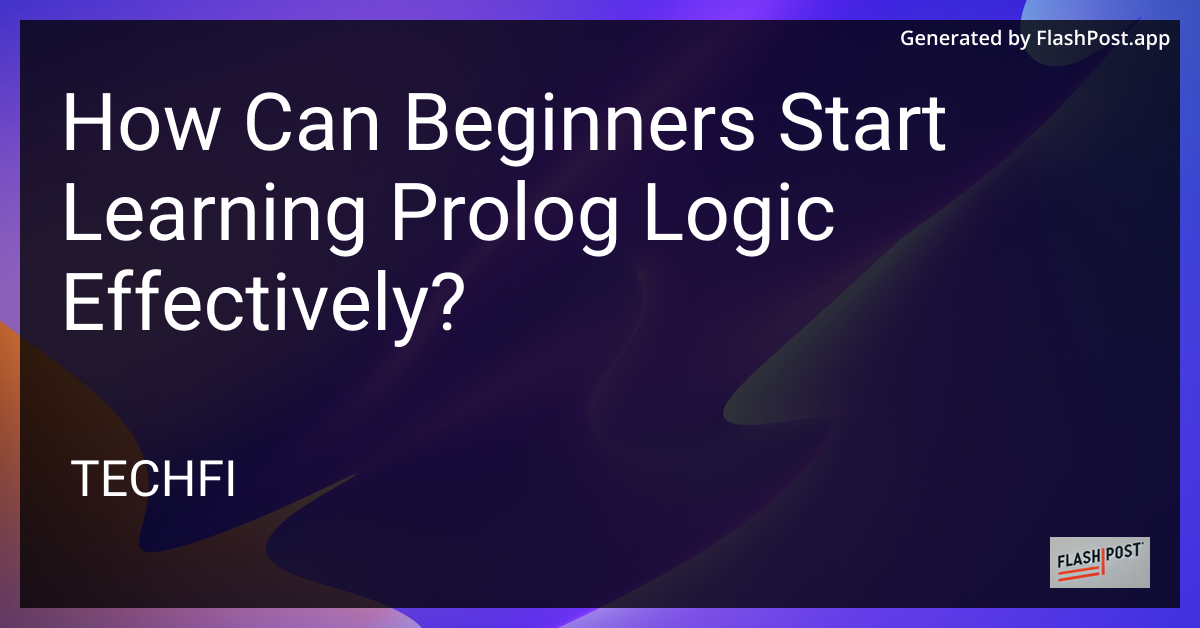How Can Beginners Start Learning Prolog Logic Effectively?

Prolog, short for “Programming in Logic,” is a powerful programming language used primarily in artificial intelligence and computational linguistics. Its unique paradigms can be daunting for beginners, but with the right approach, you can start mastering Prolog effectively. Here’s a step-by-step guide to help you begin your Prolog journey.
Understanding the Basics of Prolog
Before diving into prolog logic programming, it's essential to understand its foundational concepts. Prolog is built on facts, rules, and queries, making it different from other languages that rely on procedural or object-oriented principles.
Facts: These are the basic assertions about objects or relationships in the problem domain. For example,
parent(tom, jerry).states that Tom is a parent of Jerry.Rules: Rules define relationships between facts using logical implication. For instance, a rule could state that someone is a grandparent if they are a parent of a parent. Learn more about prolog logical implication.
Queries: Queries enable you to ask questions about the information in your database and obtain answers based on defined facts and rules.
Starting with a Simple Prolog Program
Begin with a basic program to understand the syntax and working of Prolog. You might try writing simple facts and forming queries based on them. For instance, start with facts about family relationships and create queries to discover connections.
Exploring Prolog Logic Operators
Familiarize yourself with prolog logic operators like conjunctions, disjunctions, and negations. These operators are crucial for constructing complex queries and rules.
Implementing Conditional Logic
Conditional logic in Prolog is vital for creating comprehensive rules. Learn to use the “if-then-else” construct to make informed decisions in your programs. Explore more about implementing if-then-else in prolog.
Exercises and Practice
Practicing Prolog with small exercises can solidify your understanding. Consider tasks such as sorting lists, finding the smallest value, or defining family trees. You can explore more practical problems on prolog logic programming.
Additional Tips for Effective Learning
Refer to Documentation and Books: Numerous resources, from comprehensive textbooks to online tutorials, can help deepen your understanding of Prolog.
Join Online Forums and Communities: Engage with other learners and experts in forums or communities like Stack Overflow to seek help and exchange knowledge.
Debug and Experiment: Prolog’s interpreter environment lets you test code snippets in real-time, making it easier to debug and experiment with new constructs.
Combining these learning strategies with hands-on experience will make your journey into the world of Prolog logic both effective and enjoyable. Embrace the logic, and let Prolog’s unique capabilities enhance your programming repertoire. ```